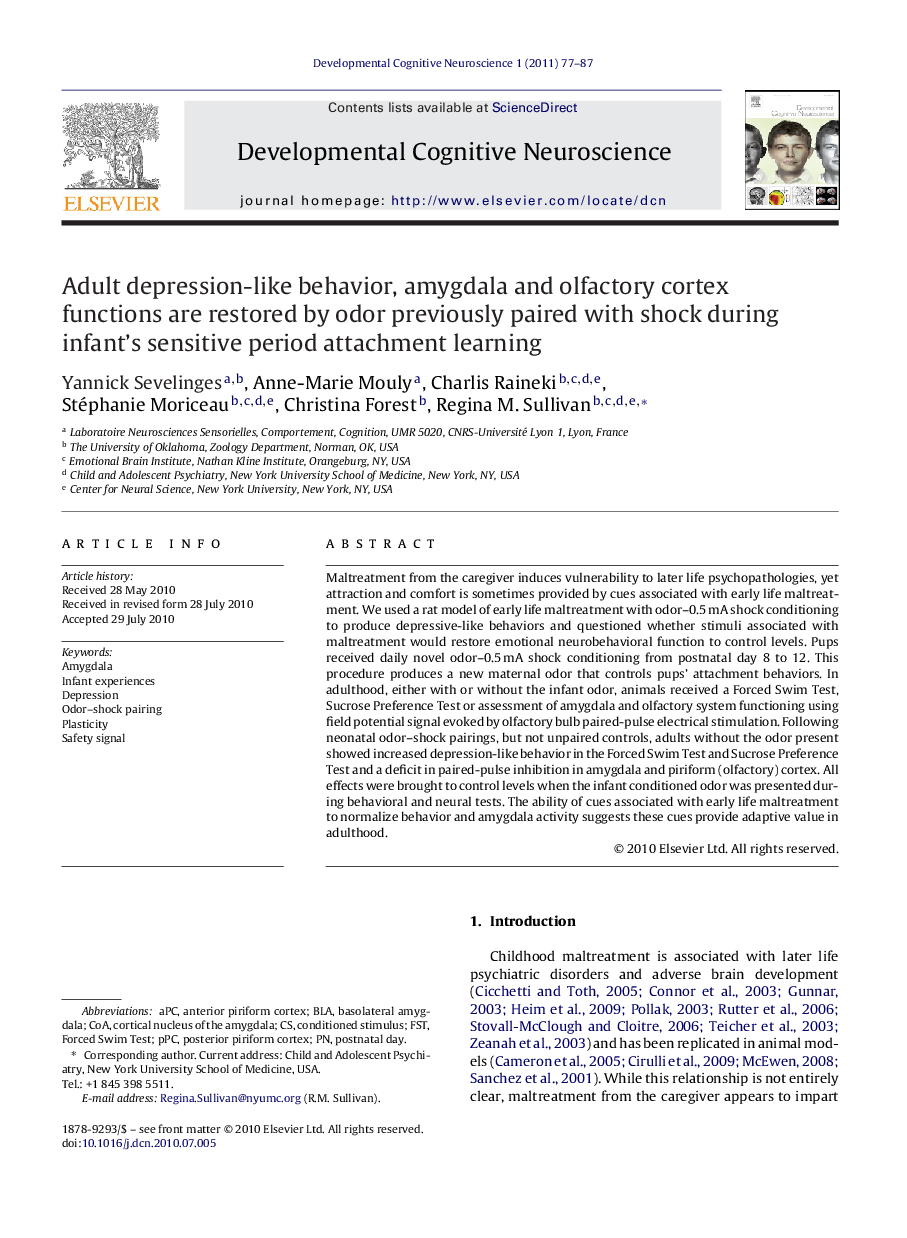| کد مقاله | کد نشریه | سال انتشار | مقاله انگلیسی | نسخه تمام متن |
|---|---|---|---|---|
| 4316758 | 1290552 | 2011 | 11 صفحه PDF | دانلود رایگان |

Maltreatment from the caregiver induces vulnerability to later life psychopathologies, yet attraction and comfort is sometimes provided by cues associated with early life maltreatment. We used a rat model of early life maltreatment with odor–0.5 mA shock conditioning to produce depressive-like behaviors and questioned whether stimuli associated with maltreatment would restore emotional neurobehavioral function to control levels. Pups received daily novel odor–0.5 mA shock conditioning from postnatal day 8 to 12. This procedure produces a new maternal odor that controls pups’ attachment behaviors. In adulthood, either with or without the infant odor, animals received a Forced Swim Test, Sucrose Preference Test or assessment of amygdala and olfactory system functioning using field potential signal evoked by olfactory bulb paired-pulse electrical stimulation. Following neonatal odor–shock pairings, but not unpaired controls, adults without the odor present showed increased depression-like behavior in the Forced Swim Test and Sucrose Preference Test and a deficit in paired-pulse inhibition in amygdala and piriform (olfactory) cortex. All effects were brought to control levels when the infant conditioned odor was presented during behavioral and neural tests. The ability of cues associated with early life maltreatment to normalize behavior and amygdala activity suggests these cues provide adaptive value in adulthood.
Figure optionsDownload as PowerPoint slideResearch highlights▸ Context of infant trauma predicts outcome. ▸ Predictable infant trauma induces depressive-like behaviors. ▸ Unpredictable infant trauma induces anxiety-like behaviors. ▸ Predictable infant trauma can induce learning of cues of positive hedonic value. ▸ These infant trauma characteristics dramatically diverge from adult trauma effects.
Journal: Developmental Cognitive Neuroscience - Volume 1, Issue 1, January 2011, Pages 77–87